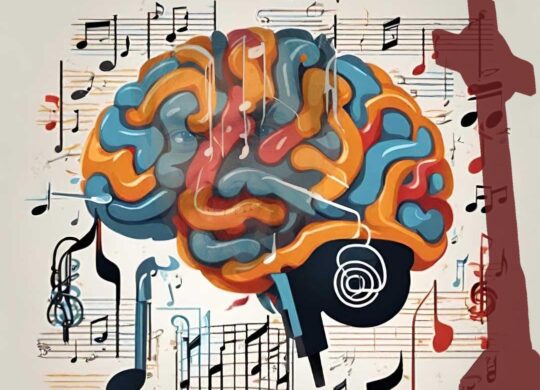Musicmaking!

Yes, we are all losing our edges. “What was your name, again?” “Where are those keys?” “What did I come upstairs for?” Etc.
But there might be a way out. Say researchers at Memorial University of Newfoundland, Canada, in “Age and Familiarity Effects on Musical Memory,” published in Public Library of Science One the other day. They explored how age related to ability to remember melodies. Good news: when it came to recognizing musical themes, older folks performed just as well as their younger counterparts.
Participants heard a theme three times then were tasked with identifying it in three pieces of music in real time: a familiar classical work (Mozart’s Eine Kleine Nachtmusik) and two newly composed pieces. One of these new pieces was written in a familiar tonal style, while the other was composed using an unfamiliar atonal system. If they recognized a theme introduced earlier, they were to press a button.
The study was conducted both in a live concert setting and in a laboratory, allowing researchers to compare how well people performed in each environment. Surprisingly, there was no significant difference between the two settings, suggesting that the ability to recognize musical themes remains robust even in the more distracting atmosphere of a live concert.
Other cognitive skills may come and they may go, but music? It stays!
Said one report:
The study’s most striking finding was the lack of age-related differences in performance. Whether participants were in their 20s or their 80s, they were equally adept at picking out the musical themes they’d been asked to identify. This held true across all three pieces of music, regardless of how familiar or unfamiliar the musical style was.”
In some way or another, music appears to have a unique power to engage brains that is quite resilient, resistant to the ravages of aging.
Surprisingly, formal music training had virtually no impact on performance in these tests. Hey, even if you can’t play an instrument, or read a note on a score, there is hope. Your brain remains active and functional, at least for music.
The authors conclude:
This study further supports the use of music in particular as a medium for cognitive maintenance and training in older adults by offering evidence that recognition memory is not affected by age in a realistic listening situation. Accordingly, music recognition could be considered a strength, onto which other aspects of memory could be scaffolded in a rehabilitation setting. For example, it may be easier to remember something if you pair a melody with it. In fact, this idea is not new. Throughout history songs have been used to transmit information orally between generations.”
The Bible new this all along! In the Psalter, the Hebrew verb zamar, “make music,” occurs about 43 times. Every single time this musicmaking is unto God. That, to me, is confirmation of the fact that music makes you wiser!
Make music to God, make music;
make music to our King, make music.
For King of all the earth is God;
make music with understanding.
He reigns—God—over the nations;
God, He sat on His holy throne.
Psalm 47:6–8
Shout triumphantly to God, all the earth;
make music to the glory of His name;
make glorious His praise. …
All the earth will worship You,
and will make music to You;
they will make music to Your name.”
Psalm 66:1–2, 4
Praise Yah.
Praise Yahweh, my soul.
I will praise Yahweh for [all] my life;
I will make music to my God for always.
Psalm 146:1–2
SOURCE: StudyFinds; PLoS ONE











 Abe Kuruvilla is the Carl E. Bates Professor of Christian Preaching at The Southern Baptist Theological Seminary (Louisville, KY), and a dermatologist in private practice. His passion is to explore, explain, and exemplify preaching.
Abe Kuruvilla is the Carl E. Bates Professor of Christian Preaching at The Southern Baptist Theological Seminary (Louisville, KY), and a dermatologist in private practice. His passion is to explore, explain, and exemplify preaching.